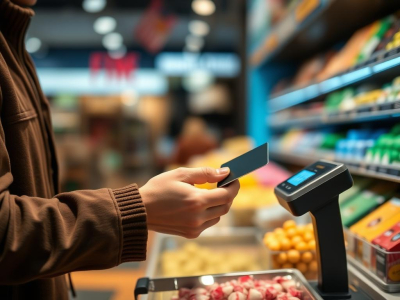
To enhance customer experience in cryptocurrency transactions, prioritize awareness and guidance. Begin by outlining the fundamental benefits, such as lower transaction fees, faster payment processing, and increased accessibility. Educate customers on how these advantages can optimize their financial decisions.
The security of cryptocurrency transactions is paramount. Provide clear instructions on safeguarding digital wallets and recognizing potential threats. Customers should understand the importance of using two-factor authentication and secure connections to protect their assets from cyber risks.
Facilitating a comprehensive understanding of payment processes will empower customers to navigate the cryptocurrency landscape confidently. Offer tutorials that break down transaction steps, ensuring users grasp how to initiate transfers, manage exchanges, and verify successful completions. This proactive approach fosters trust and encourages wider adoption.
Understanding Wallet Types
Choose a wallet type based on your specific needs for security and convenience in cryptocurrency transactions.
- Hot Wallets:
- Connected to the internet, making them easy for frequent transactions.
- Best for customers needing quick access to funds for payments.
- Less secure than cold wallets; consider using them for small amounts only.
- Cold Wallets:
- Offline storage options such as hardware or paper wallets.
- Provide enhanced security against online threats.
- Ideal for long-term storage of larger sums of cryptocurrency.
- Mobile Wallets:
- Designed for smartphones, offering convenience and functionality.
- Enable quick payment processing with QR codes or NFC technology.
- Ensure regular software updates to maintain security standards.
- Desktop Wallets:
- Installed on personal computers, providing control over private keys.
- Slightly more secure than hot wallets but still vulnerable to malware if not properly secured.
- A good balance between usability and security; suitable for moderate amounts of cryptocurrency management.
Educate customers about the benefits and risks associated with each wallet type. Increasing awareness around best practices will enhance their security posture in handling digital assets. Provide guidance on setting up wallets securely and remind them to keep recovery phrases safe. Regularly review wallet settings and transaction history to detect any suspicious activity promptly.
Recognizing Transaction Fees
To optimize cryptocurrency transactions, customers must be aware of transaction fees associated with different networks. Always check the fee structure before initiating a payment. Each cryptocurrency has its own model, influenced by network congestion and block size.
Educate yourself on how fees fluctuate; for example, Bitcoin fees can rise sharply during peak times. Using wallets that allow you to adjust fees can enhance your control over costs while ensuring timely confirmations.
Consider utilizing platforms that offer transparent fee structures. This aids in making informed decisions about which service aligns best with your transaction needs. Awareness of potential hidden fees is crucial, as these may diminish the benefits of low nominal rates.
Prioritize security when selecting a method for transactions. Some services might charge lower fees but compromise on security measures, exposing your digital assets to risks. Assess the balance between cost and safety to ensure secure payments.
Regularly reviewing transaction history can provide insights into your spending patterns and help identify opportunities for saving on fees in future transactions. Establishing a routine for this analysis promotes better financial management within the cryptocurrency ecosystem.
Securing Your Assets
Utilize hardware wallets for storing cryptocurrency. These devices provide robust security against online threats, ensuring that your private keys remain offline and protected from potential hacks.
Enable two-factor authentication (2FA) on all accounts associated with cryptocurrency transactions. This adds an additional layer of protection, requiring a secondary verification step when accessing accounts or making payments.
Regularly update software related to your digital assets. Keeping wallets and applications current helps safeguard against vulnerabilities that can be exploited by malicious actors.
Be cautious of phishing attempts. Always verify the authenticity of websites before entering sensitive information. Bookmark important sites to avoid inadvertently visiting fraudulent pages.
Consider using multisignature wallets for added security. This approach requires multiple signatures to authorize transactions, reducing the risk of unauthorized access.
Educate yourself on common scams in the cryptocurrency space. Awareness is critical; understanding tactics used by fraudsters enhances your ability to protect your assets effectively.
Establish a backup plan for your wallet recovery phrases. Store these securely in multiple locations to ensure access even in case of device loss or damage.
Monitor transaction activities regularly to identify any unauthorized movements swiftly. Prompt action can mitigate potential losses and enhance overall security.
Navigating Exchange Platforms
Choose exchanges that emphasize security and user experience. Verify if the platform utilizes two-factor authentication (2FA) and cold storage for funds, reducing exposure to hacks. Look for platforms with a transparent fee structure, ensuring customers understand transaction costs upfront.
Evaluate liquidity on exchanges; higher liquidity typically leads to better pricing and faster transactions. Explore reviews and feedback from other users to gauge reliability and customer service responsiveness. Prioritize exchanges with comprehensive support channels to assist during transactions.
Consider regulatory compliance when selecting an exchange; those adhering to local laws provide an added layer of security for customers. Familiarize yourself with the deposit and withdrawal processes, as some platforms may impose restrictions or fees that could impact your digital payment strategies.
Stay informed about ongoing updates or changes in policies on chosen platforms. Many exchanges evolve their services based on market conditions, which can affect transaction methods or available cryptocurrencies. Active awareness ensures you can make informed decisions regarding your cryptocurrency management.


You can be the first!